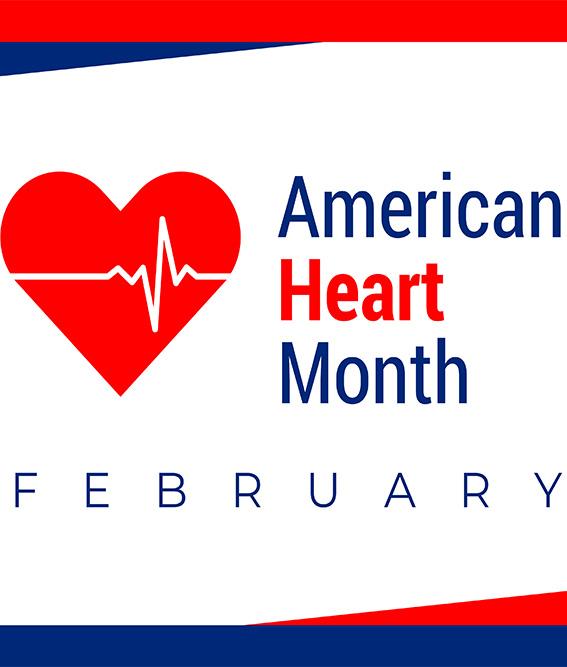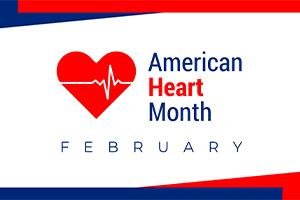American Heart Month: Risk Factors for a Heart Attack

February is American Heart Month. It’s a good reminder to review the habits and traits that could increase your risk for a heart attack and then mitigate any negative influences to improve your heart health.
Controllable Risk Factors
Various lifestyle choices can affect your heart health, including your diet, exercise routine, stress management and substance use.
High Blood Pressure
High blood pressure damages the arteries that supply blood to your heart. It can also cause your heart muscle to thicken, which affects its ability to pump. High blood pressure may exacerbate other conditions like high cholesterol that contribute to your heart attack risk.
How to address high blood pressure:
- Use stress management techniques, such as deep breathing, meditation and journaling.
- Avoid foods high in sodium, like canned soups, processed meats, pickles and salted nuts.
- Take blood pressure medication as directed by your doctor if you require it to manage your condition.
High Cholesterol
Lipoprotein or “bad” cholesterol can narrow your arteries, reducing the amount of blood flow to your heart. Plaque buildup can cause artery ruptures that may result in blood clots.
How to address high cholesterol:
- Swap red meat for poultry and fish.
- Avoid high-fat dairy products, shellfish and egg yolks.
- Maintain a healthy weight.
Physical Activity
Exercising boosts your cardiovascular system and reduces your risk of a heart attack. Aerobic exercise gets your heart pumping, improving blood flow and oxygenation. Your blood vessels dilate during exercise, which reduces the strain of high blood pressure on your heart.
Staying physically active also allows you to manage your weight and reduce your risk of obesity. Being overweight can place more strain on your cardiovascular system and increase your chance of having a heart attack.
Tips for getting more exercise:
- Take short 10 or 15-minute walks throughout your day, especially if you sit for long periods.
- Try home workout routines like yoga or Pilates.
- Participate in an active hobby, such as hiking or dancing.
- Walk or ride your bike to run errands or get to work.
Alcohol and Tobacco Use
Drinking excessive amounts of alcohol can contribute to high blood pressure, plaque buildup and an irregular heartbeat.
Nicotine restricts your blood vessels and increases your blood pressure. Using tobacco products also decreases your blood oxygen level, so your heart has to work harder to oxygenate your body. You’re also at greater risk of developing blood clots that can cause a heart attack or stroke.
Tips for reducing tobacco and alcohol use:
- The CDC recommends that men limit alcohol consumption to two drinks per day and women to one drink.
- Drink beverages with a lower alcohol content.
- Create a timeline to ween off tobacco use.
- Identify and avoid triggers that may contribute to substance use.
- Try nicotine gum or patches.
Uncontrollable Risk Factors
Age: Women 55 and older and men 45 and older are at an increased risk for a heart attack.
Gender: Men are more likely to have a heart attack than women, though it’s still the leading cause of death for both genders in the United States.
Genetics: Cardiovascular conditions like coronary artery disease and arrhythmic disorders can be hereditary.
Ethnicity: People of African, South Asian and Latino descent are at greater risk for developing heart diseases that can contribute to a heart attack.
Chronic health conditions: Diabetes, metabolic syndrome, chronic obstructive pulmonary disease, rheumatoid arthritis and autoimmune diseases have been linked to an increased risk for heart attacks.
Personalized Services from Ohioans Home Health Care
Our dedicated team of nurses and aides is committed to providing you with the clinical services you need in the comfort of your own home. Contact us to learn about our services and schedule a consultation.

